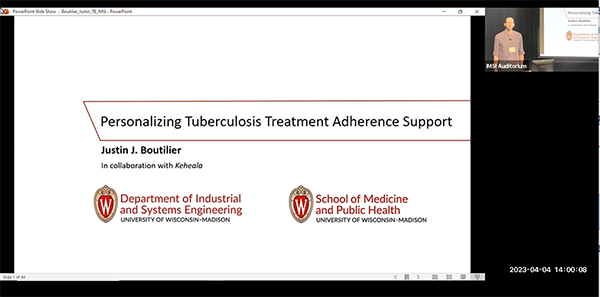Abstract
Tuberculosis (TB) is a global health priority and ending the TB pandemic is part of the United Nations Sustainable Development Goals. Lack of patient adherence to treatment protocols is the main barrier to reducing the global disease burden of tuberculosis. In this talk, we will study the operational design of a treatment adherence support platform that requires patients to verify their treatment adherence on a daily basis. To do this, we partner with Keheala, a TB treatment adherence support provider in Kenya and use data from a completed randomized controlled trial. First, we investigate who should be enrolled on the platform by evaluating who benefits from treatment adherence support. We use a causal forest framework to estimate heterogenous treatment effects and demonstrate that differentiated care can improve program efficiency and reduce inequity in treatment outcomes. Second, we use an empirical framework to quantify the impact of costly human support sponsor outreach on subsequent patient verification behavior. We then develop a rolling-horizon machine learning framework to generate dynamic risk predictions for patients enrolled on the platform. Our analysis establishes that patient verification can be increased by personal sponsor outreach and that patient behavior data can be used to identify at-risk patients for targeted outreach. This work represents an important step towards shifting the current TB treatment adherence paradigm from observational (i.e., monitoring and collecting data on patient adherence) to actionable (i.e., combining behavioral data with analytics to improve patient adherence in a personalized manner).
